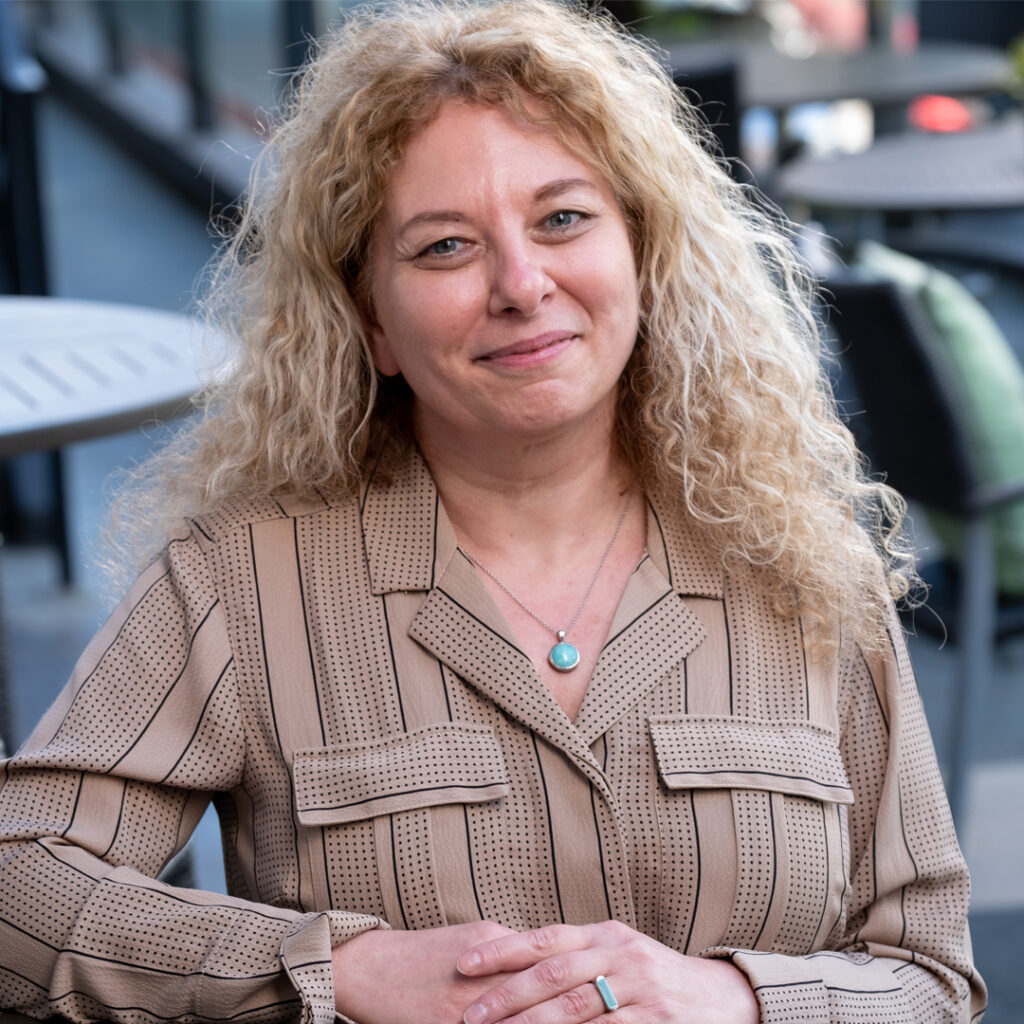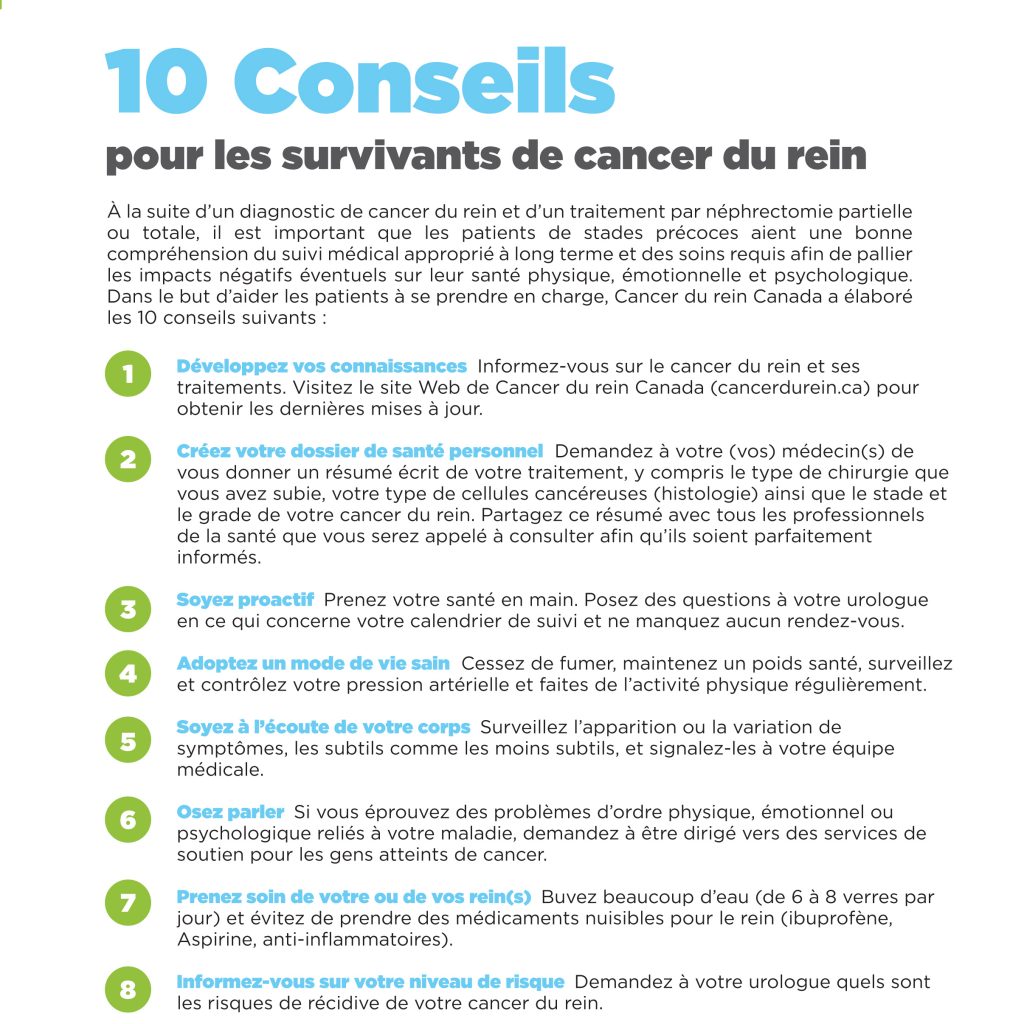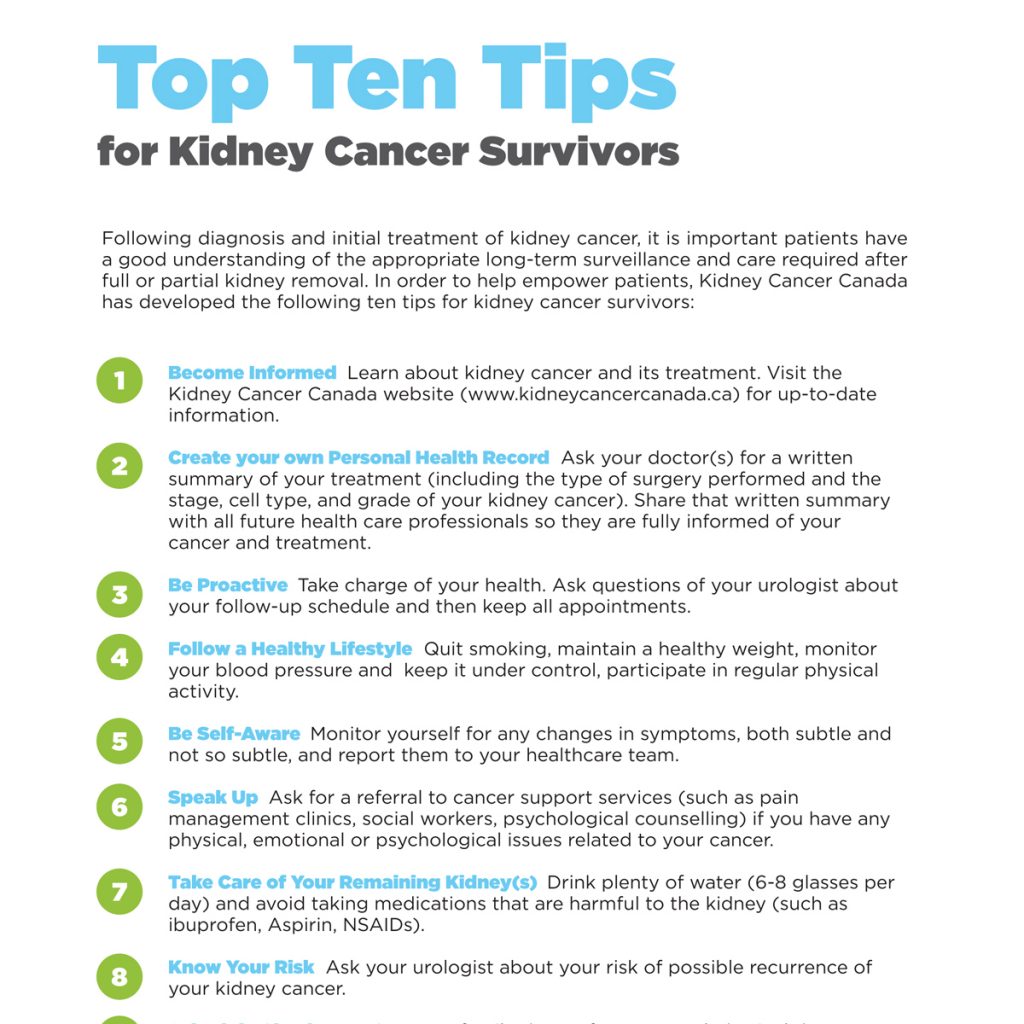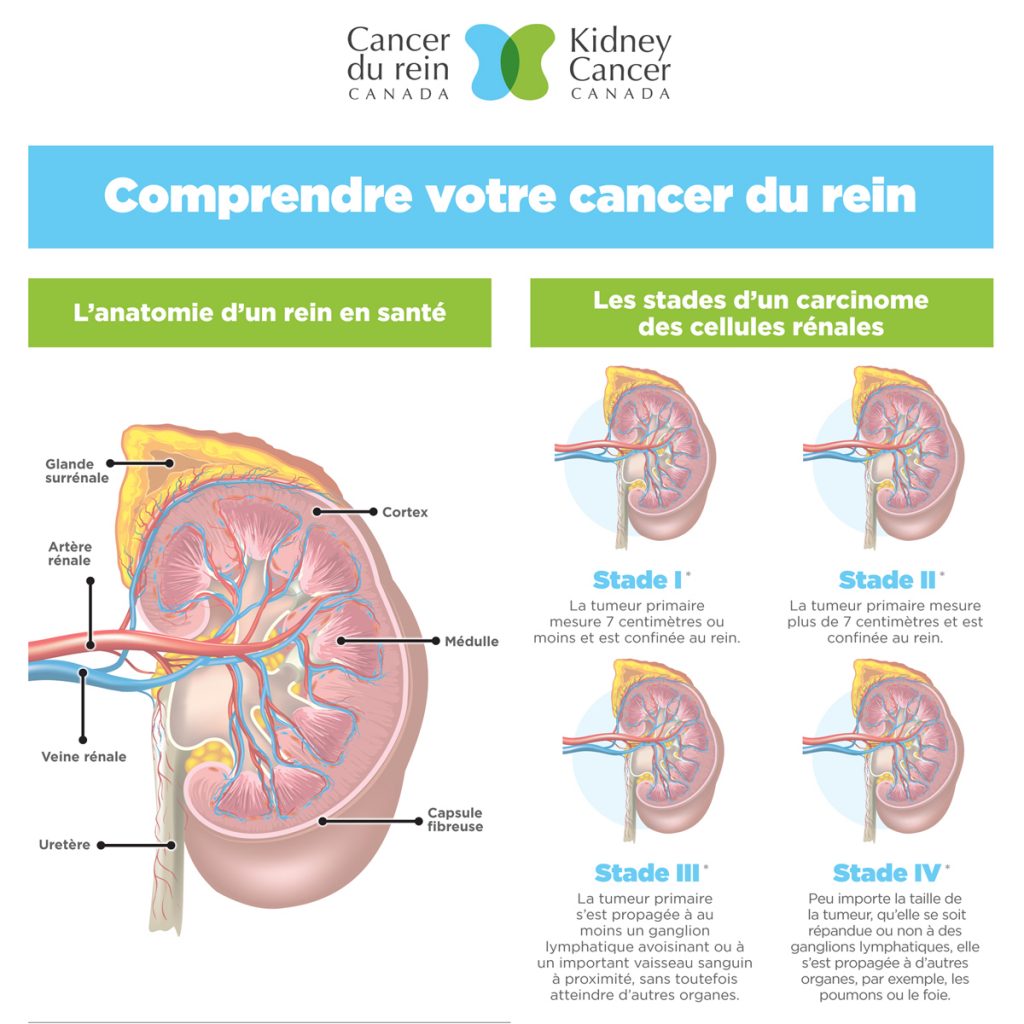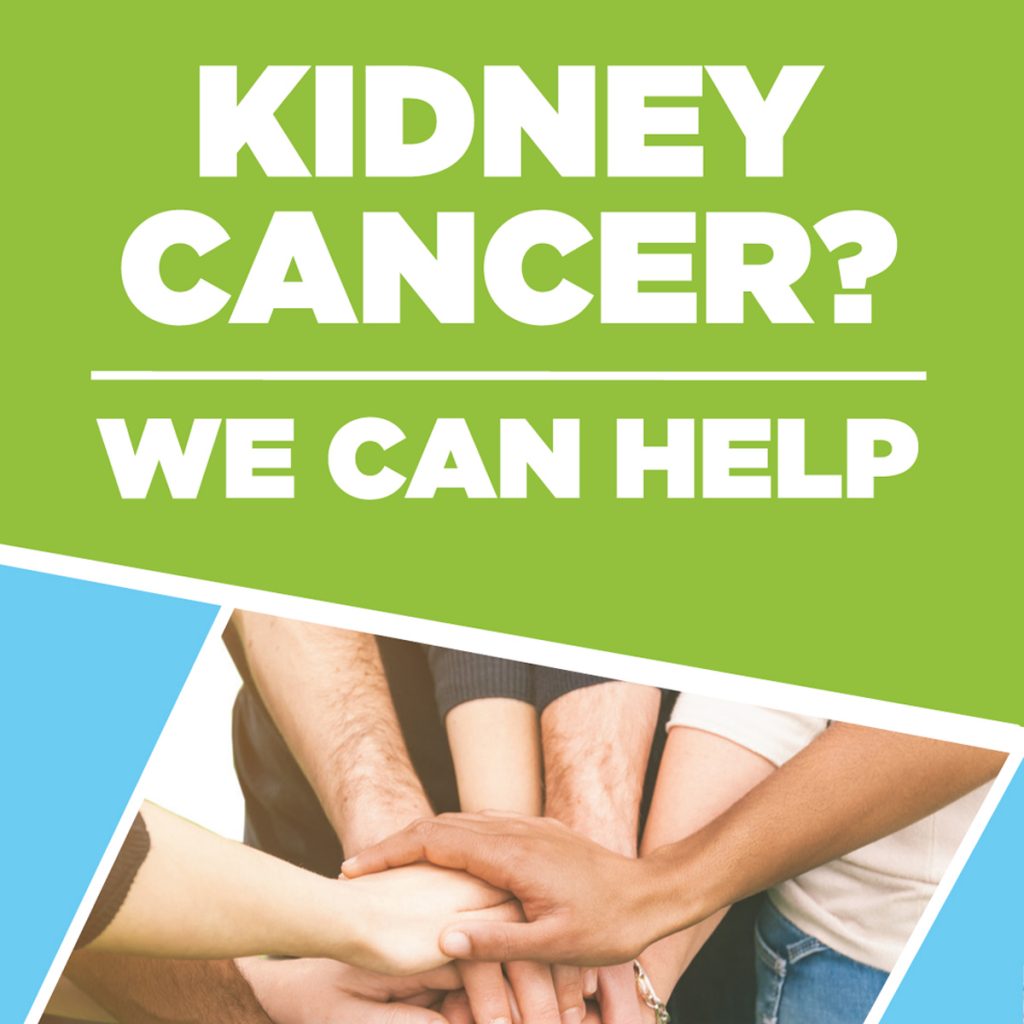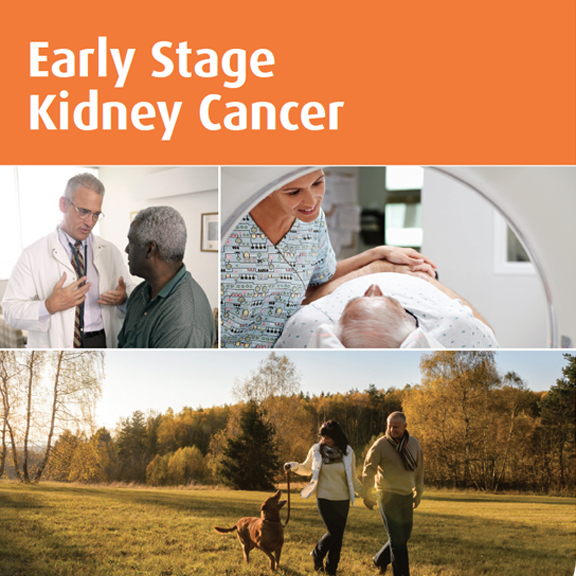
Kidney Cancer Highlights from ASCO 2022
Source : International Kidney Cancer Coalition (IKCC)
This year’s American Society of Clinical Oncology (ASCO) Annual Meeting was held both virtually and face-to-face from from 2-7 June 2022. The presentations are available to view on the ASCO website. The International Kidney Cancer Coalition (IKCC) reviewed the virtual scientific programme to keep abreast of the latest advances in the care and treatment of patients with kidney cancer.
Please note: The following summary was prepared for the benefit of patient advocates and patient organisations around the world who focus on kidney cancer. While this summary has been medically reviewed, the information contained herein is based upon public data shared at this meeting and is not intended to be exhaustive or act as medical advice. Patients should speak to their doctor about their own care and treatment.
Can adjuvant therapy help people with high-risk kidney cancer?
Adjuvant therapy is medication that is given a few weeks after surgery to try to prevent or delay the cancer from coming back. Adjuvant therapy can be used to kill any remaining microscopic cancer cells that cannot be seen on scans, or it can control the growth of any remaining cancer.
Nephrectomy is the standard of care for localised kidney cancer; however, the cancer may come back in some people after surgery (recurrence). Adjuvant therapy would help to prevent recurrence of the disease after nephrectomy in patients with high risk localised kidney cancer. Both tyrosine kinase inhibitors (TKIs) and immunotherapies have been tested as adjuvant therapies for kidney cancer, but the benefit for patients has been inconsistent.
Is early treatment with adjuvant therapy healthy, cost effective and wise: the patient perspective?
education session E451During this discussion, Deb Maskens, a founding member and former Vice Chair of the IKCC, presented the patient perspective about the cost and effectiveness of adjuvant therapy for people with kidney cancer. Data from surveys conducted by KCCure and the IKCC were used during this presentation.
There is a high unmet need for adjuvant therapy for kidney cancer patients to help them live longer with a better quality of life. The ideal adjuvant therapy would allow for patient selection based on individual risk, provide a clear benefit to patients, be tolerable with no long-term side effects and be affordable, accessible, and acceptable to patients and their families.
Patient views about adjuvant targeted therapies (tyrosine kinase inhibitors, TKIs) were negative overall. A survey by KCCure indicated that patients would only take adjuvant therapy if there was a clear survival benefit (25%) or a prolonged period where they remained cancer-free on follow-up scans (60%). The uptake of adjuvant TKIs has been poor due to lack of survival benefit and known side effects.
For people taking adjuvant immunotherapy, half of those who were surveyed expected the risk of their cancer returning to be around 40-50%. Less than 10% of patients said they would not take adjuvant immunotherapy because of the potential side effects. In a follow-up question, about 50% would accept the risk of the use of steroids to manage side effects if that risk was in the range of 20-25%.
For which people is adjuvant therapy wise? Before taking adjuvant immunotherapy, people need to consider potential side effects (about a fifth of people have serious or life-threatening side effects), having treatment when is it not necessary, drug costs (in countries without a state health system), having to go to hospital for immunotherapy infusions for about a year, and their quality of life while on the medication.
Is early treatment healthy, wealthy, and wise? This depends on whether treatment can be safely delayed without the cancer coming back, whether metastases can be treated locally (with radiotherapy, for example), and whether combination treatments can eventually cure kidney cancer that has spread to other parts of the body (metastatic kidney cancer). Where does adjuvant immunotherapy fit in the treatment pathway? Unfortunately, we do not have comparative clinical trials to answer these questions, now or in the future.
The development of new treatments needs the patient voice to ensure clinical trial endpoints are relevant for patients, there are meaningful quality of life assessments, and patients have an input into study design. Patients also need shared decision-making aids to help with treatment decisions together with their clinicians. Leaving patients out is not healthy or wise!
Can adjuvant everolimus prevent recurrence following surgery?
Abstract LBA4500This phase 3 study (called the EVEREST trial) looked at the effect of adjuvant therapy with a tablet called everolimus, a type of mTOR inhibitor. The people in this study had cancer that had not yet spread but who were at high risk of their cancer coming back.
There were 1545 patients in the study. Half of these patients were randomly allocated to be given everolimus, the other half were given a placebo tablet. All patients had an intermediate to high risk of their cancer returning. Most patients had clear cell kidney cancer, 17% had non-clear cell kidney cancer.
Patients were followed for an average of more than 6 years. During this time, everolimus improved cancer-free survival compared to placebo, but the difference was not significant (64% compared to 61% at 6 years). This means that this result may have been due to chance and was not a real effect. In patients with a very high risk of their cancer returning, there was a 21% improvement in cancer-free survival with everolimus. This was found to be statistically significant. Overall survival time was similar for both the everolimus group and the placebo group. More people withdrew due to side effects from everolimus (37% versus 5%), most being serious or life-threatening.
In conclusion, everolimus did not significantly improve cancer-free survival after nephrectomy in people with kidney cancer that was at intermediate or high risk of returning compared to placebo. Adjuvant therapy with everolimus may be most relevant in people with a very high risk of their cancer returning. The big question is whether this treatment will be used when other options, like adjuvant pembrolizumab, have been shown to potentially be better at preventing kidney cancer from coming back.
Can bacteria in the gut help improve the effectiveness and tolerance of immunotherapy for people with metastatic kidney cancer?
Can gut bacteria boost the effectiveness of immunotherapy?
Abstract 4510This study came about because it was noticed that people who were given antibiotics while also taking immunotherapy had worse responses to treatment than people who did not take antibiotics. This might be because the antibiotics change the type of bacteria in the gut, which in turn affects how the gut immune system functions. These changes ultimately impact how the entire immune system can fight not only bacteria, but cancer.
Recent evidence suggests that the bacteria in the gut (the gut microbiome) interacts with immunotherapy in metastatic kidney cancer. The bacterium Clostridium butyricum, which produces butyrate, has been investigated to see if it can modify the bacteria in the gut. Clinical outcomes in patients with metastatic kidney cancer being treated with the immunotherapy medicines, nivolumab plus ipilimumab, were looked at. Clostridium butyricum is the key bacterium in CBM-588.
Some earlier studies using CBM 588 seemed to improve the response to immunotherapy in people taking antibiotics.
The aim of the current study was to see if changing the genes for antibiotic resistance using CBM 588 could improve the response to immunotherapy. 29 patients with metastatic kidney cancer at high risk of serious disease were put into two groups. One group were treated with nivolumab plus ipilimumab and the other group were treated with a nivolumab plus ipilimumab and CBM 588.
Their stool samples were analysed for bacteria. The researchers also looked at the genes for antibiotic resistance for the most common types of antibiotics.
Nearly three times more people responded to immunotherapy treatment while taking CBM 588 compared to those who were not taking CBM 588. Also, the antibiotic resistance genes were decreased in the people who were treated with CBM 588 and ipilimumab plus nivolumab.
This study shows that the response of kidney cancer patients to immunotherapy can be improved by changing the types of bacteria in the gut. This is a very small study, but quite interesting. Further study is eagerly awaited.
Gut bacteria may help prevent side effects in in people with metastatic kidney cancer treated with immunotherapy
Abstract 4553The bacteria in the gut play a vital role in developing immunity to disease and may be able to control the immune response caused by immunotherapy in people with cancer. This phase 1 study looked at a process called stool transplant (or faecal microbiota transplant) where faecal bacteria and other microbes from healthy people are transferred to other people to help treat disease. This was done before immunotherapy to make the gut bacteria more resilient, make the treatment more tolerable, and improve response to treatment.
This study is currently ongoing to look at the safety of stool transplant and immunotherapy combinations as a first treatment for metastatic kidney cancer. The study is also assessing whether stool transplant can reduce the number of immune-related side effects to immunotherapy.
So far, 10 metastatic kidney cancer patients have had a stool transplant and treatment with combination immunotherapy. All patients had intermediate- or poor-risk disease and have been followed-up for nearly 6 months. 4 patients have dropped out of the study because of immune-related side effects (colitis and arthritis) and 8 patients in total have reported immune-related side effects, including diarrhoea and skin rash. Most side effects were serious or life-threatening (60%). 4 patients responded to treatment and their cancer got smaller.
Further studies are needed to look at the role of stool transplant in preventing side effects to immunotherapy and to look at the changes in the gut bacteria.
Survival and quality of life with the cabozantinib plus nivolumab combination
Does the degree of response to cabozantinib plus nivolumab affect clinical outcomes?
Abstract 4501Ongoing results from the phase 3 CheckMate-9ER clinical trial with nivolumab (an immunotherapy infusion) plus cabozantinib (a tyrosine kinase inhibitor tablet) were presented. Earlier data from the CheckMate 9ER study showed that the nivolumab plus cabozantinib combination doubled the average time to when the treatment stopped working and the cancer started growing again compared to sunitinib. Also, nearly twice as many patients responded to the combination.
In this presentation, the decrease in the size of the tumour was compared to clinical outcomes in people with metastatic kidney cancer who had been treated with nivolumab plus cabozantinib or sunitinib.
Overall, more patients treated with the combination had more than 50% decrease in the size of their tumour compared to patients treated with sunitinib. These responses were associated with a longer time to when the cancer started growing again at 12 months compared to sunitinib. However, overall survival times were similar with the combination treatment and sunitinib, although it is not entirely clear why survival was not significantly improved in this group.
In this study, bigger decreases in the size of the tumour were seen in more patients taking nivolumab plus cabozantinib than in those on sunitinib. Large decreases in the size of the tumour were not linked to longer survival in this study, although it is not entirely clear what factors exactly influence survival.
How does quality of life affect clinical outcomes with cabozantinib plus nivolumab?
Abstract 4502Additional follow-up information from the phase 3 clinical trial, CheckMate-9ER, shows that cabozantinib used together with nivolumab is still better than a tyrosine kinase inhibitor tablet alone at shrinking the cancer and improving survival in patients with metastatic kidney cancer who had not previously taken any medication.
After an average follow-up time of nearly three years (33 months) the combination of cabozantinib plus nivolumab continued to show longer survival, control of the cancer, and shrinkage of the cancer on scans compared to sunitinib (a tyrosine kinase inhibitor tablet).
Researchers wanted to see if there was a direct link between quality of life and survival in patients taking the cabozantinib plus nivolumab combination for metastatic kidney cancer.
Side effects, such as feeling tired, and those that seemed to bother the patient caused more patients to feel bad before their cancer got worse. Overall survival time was linked to quality of life. Patients who had better quality of life at the start of the study had a lower risk of dying. After 6 months, patients with improved or stable quality of life had a 52% reduction in risk of death compared to those whose quality of life had got worse.
These results showed a link between quality of life and clinical outcomes in patients taking the cabozantinib plus nivolumab combination. Therefore, patient-reported outcomes may be useful for describing the patient’s experience during a clinical trial and predicting clinical outcomes during routine clinical practice.
Three years follow-up data from the belzutifan study for pre-treated metastatic kidney cancer
Abstract 4509Treatments for people with metastatic kidney cancer have changed over the past several years, resulting in big improvements in patient outcomes and survival. However, for most patients unfortunately their cancer eventually gets worse on current treatments.
Studies looking at the genes of people with kidney cancer have shown mutations in a gene called the von Hippel-Lindau (VHL) gene. This results in high levels of a protein called hypoxia-inducible factor, or HIF-2α in the blood of these patients. This causes changes in the cancer cells resulting in the growth of the tumour. A new medicine, called a hypoxia-inducible factor 2α (HIF-2α) inhibitor, or belzutifan, is a tablet that blocks the action of HIF-2α. This occurs in more than 90% of kidney cancer patients with a clear cell subtype.
An earlier study showed that belzutifan had long-lasting anti-tumour activity and was tolerable for people with metastatic kidney cancer.
At ASCO 2022, updated results from this trial presented more than 3 years of follow-up data. Of the 55 patients in the study, 16% of patients remained on belzutifan after 3 years. 62% of patients had stopped treatment because, unfortunately, their cancer got worse.
The average time to when the treatment stopped working and the cancer started growing again was 14.5 months. The cancer was controlled in 80% of patients.
40% of patients had a serious side effect, mostly low blood haemoglobin levels (anaemia) and low blood oxygen levels (hypoxia). There were no life-threatening side effects or deaths during the 3 years of follow-up that were caused by the treatment.
These results show that belzutifan can control the cancer in a large proportion of patients with metastatic kidney cancer who have already been treated with anti-cancer medication. Belzutifan is a tolerable treatment for most patients. A phase 3 trial in metastatic kidney cancer patients is underway, comparing belzutifan to everolimus. If that study shows an advantage to taking belzutifan over everolimus, belzutifan will likely be approved as a treatment option for patients with metastatic kidney cancer in the next year or so.
New combinations for metastatic kidney cancer
Can durvalumab or savolitinib alone or in combination with tremelimumab improve survival in patients with metastatic kidney cancer?
Abstract LBA4503CALYPSO is a phase 2 study that looked at 3 new drugs used to treat metastatic kidney cancer that has spread to other parts of the body. The drugs that were tested were called durvalumab (an immunotherapy infusion called a PD-L1 inhibitor), savolitinib (a targeted therapy tablet called a MET inhibitor), and tremelimumab (an immunotherapy infusion called a CTLA-4 inhibitor). Durvalumab and savolitinib were tested alone, and durvalumab was tested in combination with savolitinib or tremelimumab in patients with metastatic clear cell or papillary kidney cancer.
A protein called MET (also called hepatocyte growth factor receptor) has been found to stimulate the growth and development of tumours. Savolitinib can block MET, which has been shown to be effective in patients with papillary kidney cancer.
This presentation reports on the effectiveness of these medicines in patients with metastatic clear cell kidney cancer. The patients had been previously treated with a targeted therapy, called a tyrosine kinase inhibitor, but not immunotherapy or MET inhibitors. This presentation reports the data from 139 patients after 12 months of treatment.
The study did not show any significant benefit for savolitinib alone or in combination with durvalumab or tremelimumab in patients with metastatic clear cell kidney cancer. It is not yet known whether these drugs work better in patients with papillary kidney cancer.
Potential biomarkers of effectiveness of treatments for kidney cancer
Monitoring the effectiveness of sunitinib in metastatic kidney cancer using personalised tumour information and ctDNA analysis
Abstract 4525About a third of kidney cancer cases are diagnosed when the cancer has already spread to other tissues and organs (stage 4). Patients with stage 4 or metastatic kidney cancer have poor outcomes, and less than half of them will survive for 5 years. Doctors need a way to assess the effectiveness of medicines for metastatic kidney cancer and to monitor the progress of the disease.
Biomarkers are naturally occurring substances in the body that can be used to assess the progress of a disease or a body process. Liquid biomarkers are found in the blood. Liquid biomarkers, like circulating tumour DNA (ctDNA), can be used to assess disease in response to treatment. It can also be used to monitor the status of the disease over time and predict progression.
This study looked at whether ctDNA that had been personalised for kidney cancer tumours could be used to assess the response of metastatic kidney cancer patients to treatment with sunitinib.
There were 21 patients with metastatic kidney cancer in the study. All were treated with sunitinib and had surgery to remove their kidney cancer during their second cycle of sunitinib treatment.
Higher ctDNA levels were seen in the blood of patients with many metastases compared to patients with only one metastasis. During the study, patients whose ctDNA levels had increased from the start of the study were more likely to have progression of their cancer compared to those whose ctDNA levels decreased.
The study showed that during treatment with sunitinib, disease progression was more likely in patients with an increase in ctDNA from the start of the study. High ctDNA levels in the blood led to a shorter time to progression of the disease after the first treatment with sunitinib. This provides a reason to modify medication to improve response to treatment. Studies involving more metastatic kidney cancer patients are needed.
Combination therapies for pre-treated kidney cancer
Batiraxcept in combination with cabozantinib shows promise for the treatment of metastatic kidney cancer that has already been treated
Abstract 511Batiraxcept is a protein that blocks the action of AXL, a protein that promotes tumour cell growth and suppresses the immune system. Cabozantinib is a tyrosine kinase receptor inhibitor (or TKI). The first aim of this phase 1b study was to find the best dose of batiraxcept to use in combination with cabozantinib for people with metastatic kidney cancer who had already been treated with prior medicine. Secondary aims were finding the best dose to use in the phase 2 studies, a response to treatment, and the duration of this response.
There were 26 patients in the study. All patients had been treated with either a targeted therapy or an immunotherapy or both. Three quarters of them had intermediate- or high-risk disease. The patients were followed for an average of 5 months, and 24 patients remained on the study. 65% had side effects, the most common being reduced appetite, diarrhoea, and fatigue. Four patients had serious side effects, and there were no life-threatening side effects or deaths.
All patients (100%) continued to respond to treatment at 3 months. After 6 months, the treatment stopped the cancer from growing and continued to work in 79% of patients. The combination of batiraxcept and cabozantinib was well tolerated.
What is the effect of subsequent treatments in patients with metastatic kidney cancer on lenvatinib plus pembrolizumab or sunitinib?
Abstract 4514In this poster presentation, the impact of treatments in patients with metastatic kidney cancer who had been on lenvatinib plus pembrolizumab or sunitinib were looked at. In the phase 3 CLEAR study, lenvatinib plus pembrolizumab significantly improved the time to when the cancer started growing again and overall survival time compared to sunitinib when given as the first medication. This study looked at the time to when the cancer started growing again for the next medicine that was given.
For the patients who were treated with the lenvatinib plus pembrolizumab combination, the average time to when the treatment stopped working after they started their next medication was 12.2 months. For sunitinib, this was nearly halved at 6.4 months.
This study showed that the benefit of the combination of lenvatinib plus pembrolizumab remained during the second medication after the combination had failed, further supporting lenvatinib plus pembrolizumab as a standard of care as a first medication for metastatic kidney cancer.
Kidney cancer in people who have had a kidney transplant: Is there a role for screening?
Abstract 10528People who have had a kidney cancer transplant are at increased risk of developing kidney cancer due to a suppressed immune system. Most kidney cancers in these people develop in the original kidney. This can affect long-term survival. Screening for kidney cancer in people who have had a kidney transplant is not routine.
There were 1998 people who had a kidney transplant at one hospital in America. Of these, 16 (less than 1%) developed kidney cancer. An additional 4 people with kidney cancer had a kidney transplant at another hospital but were followed up in the study. The total number of kidney cancer patients in the study was, therefore, 20.
The average time to diagnosis of kidney cancer was 8 years. Most cancers were clear cell (three quarters). Although 20% were papillary kidney cancer and 5% were chromophobe kidney cancer. 60% of the cancer developed in the original kidney, while 40% developed in the transplanted kidney.
The people were divided into two groups: Those who had regular screening with ultrasound or CT scans every 2 years (12 people) and those who had no screening (8 people). All people who had screening were ‘cured’ by nephrectomy or cryotherapy. Of those who did not have regular screening, more than a third had stage 4 kidney cancer and 2 people died.
All kidney cancer transplant patients who were screened had an early diagnosis of kidney cancer and there were no deaths. A quarter of the people who were not screened had a late diagnosis of kidney cancer and died. Screening for kidney cancer in people who have had a kidney transplant is effective for the early diagnosis of kidney cancer and improved survival. This applies to all subtypes of kidney cancer, including clear cell, papillary and chromophobe. Further research is needed into the cost-effectiveness of screening.
This study reinforces the need for long-term follow-up of people who have had a kidney transplant. The scans not only need to focus on the transplanted kidney, but the original kidney too. Because these patients are immunosuppressed, an early diagnosis will result in improved survival. These patients also have a better chance to be treated with partial nephrectomy or cryoablation, saving kidney function.
In the last couple of decades, people who have had a kidney transplant have increased survival and deserve life-long surveillance of the kidneys (both original and transplanted). The proportion of people who develop kidney cancer in this population is like the non-transplanted population.
Improved survival of metastatic cancers with immunotherapy in the US: Implications for elderly patients (aged 75 and over)
Abstract 12039Immunotherapies have changed the way many cancers are treated. Data on the impact of immunotherapies in the US is lacking, particularly in the elderly. In this study, the effect of immunotherapy on several different metastatic cancers (melanoma, lung cancer, kidney cancer, head and neck cancer, Hodgkin’s lymphoma, and urothelial cancer) was assessed from a database.
There were 363,191 patients with metastatic cancers included in the study, 7% of which had kidney cancer. The average age was 66. Metastatic cancers diagnosed when immunotherapies were available had improved overall survival time, except urothelial cancers. This was shown for elderly patients (75 years or older) with kidney cancer.
Metastatic cancers diagnosed when immunotherapies were available had improved overall survival time and cancer-specific survival time, including patients aged 75 years and older. Immunotherapies should not be withheld from patients due to their age.
As people are living longer, more and more elderly people will be diagnosed with several cancers, as well as kidney cancer. Elderly patients have been under-represented in clinical trials. This study shows real-world data for a modern treatment that can be given to older patients with exciting results. Many of these patients are frail or have other diseases, excluding them from taking medicines with severe side effects. Immunotherapies offer a safe option, despite the cost.
ACKNOWLEDGEMENTS
Editor:
Dr Stenio Zequi (BR)
Medical Reviewers:
Dr Rachel Giles (NL)
Dr Michael Jewett (CA)
Dr Eric Jonasch (USA)
Medical Writer:
Dr Sharon Deveson Kell (UK)











